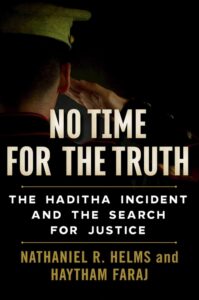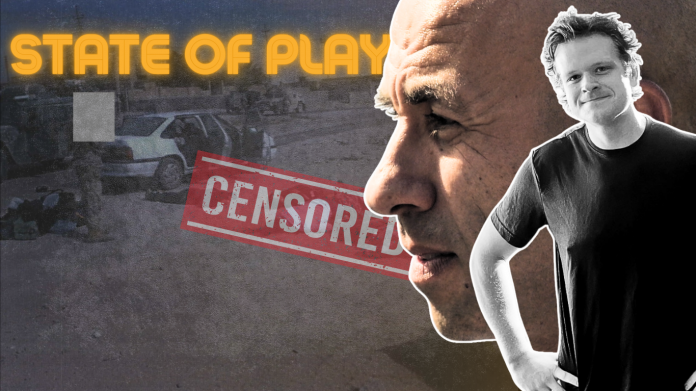The Iraq War remains one of the clearest examples of how imperialism has devastated West Asia. While the overthrow of Saddam Hussein was championed as a move toward freedom, it instead led to a bloody vacuum of power, directly contributing to the rise of ISIS and the deaths of over a million people. While American soldiers also suffered trauma, injury, and death, it was the people of Iraq who bore the brunt of the war’s devastation. Meanwhile, the U.S. military-industrial complex enriched itself as trillions of dollars were siphoned into defense contracts, and companies profited from the chaos.
Tragically, much of the war’s reality has been obscured or downplayed by media and academic networks bent on justifying the U.S.’s actions, from its lies about weapons of mass destruction to its role in fostering terrorism. For Americans, the war has become synonymous with needless death and wasted resources. For Iraqis, it is a reminder of how “freedom” came at an unimaginable cost.
Two key incidents highlight the deep moral wounds of that war: the Abu Ghraib prison abuses and the Haditha Massacre of 24 civilians by U.S. Marines in 2005. Both cases showcased systemic failures in accountability and attempts at cover-up. While the images of Abu Ghraib went viral, exposing the horrific torture inflicted on Iraqis by U.S. forces, the Haditha massacre lacked similar visual proof until a New Yorker report released on August 27 shed new light on the tragedy. Although the Haditha massacre led to an investigation, no one was truly held accountable, and the incident faded into obscurity.
 Tonight, on State of Play, we’ll delve into this dark chapter and examine the larger implications for prosecuting war crimes today. As the Haditha massacre re-enters public discourse, what hope remains for accountability? How do institutions systematically cover up such crimes, and what does this mean for those responsible for the atrocities committed in places like Gaza today? It often feels as though the U.S. and Israel can investigate themselves and come away finding no fault—an all-too-common outcome for these global powers.
Tonight, on State of Play, we’ll delve into this dark chapter and examine the larger implications for prosecuting war crimes today. As the Haditha massacre re-enters public discourse, what hope remains for accountability? How do institutions systematically cover up such crimes, and what does this mean for those responsible for the atrocities committed in places like Gaza today? It often feels as though the U.S. and Israel can investigate themselves and come away finding no fault—an all-too-common outcome for these global powers.
Joining us to discuss these issues is Haytham Faraj, a retired Marine Corps infantry officer and JAG lawyer who played a key role in investigating the Haditha massacre. His work uncovered a cover-up reaching to the highest levels of command, allowing the perpetrators of the massacre to evade justice. Faraj has co-authored a book about the case and the subsequent cover-up titled No Time for the Truth.
As we examine how the West Bank continues to be bulldozed into Gaza, the conversation about institutionally sanctioned war crimes, international humanitarian law, and systemic cover-ups becomes even more urgent. What can we do to challenge this status quo and ensure that war criminals, regardless of nationality, are brought to justice? Join us tonight as we confront these pressing questions and explore what steps can be taken to end this madness.
Greg Stoker is a former US Army Ranger with a background in human intelligence collection and analysis. After serving four combat deployments in Afghanistan, he studied anthropology and International Relations at Columbia University. He is currently a military and geopolitical analyst and a social media “influencer,” though he hates the term.
MintPress News is a fiercely independent media company. You can support us by becoming a member on Patreon, bookmarking and whitelisting us, and subscribing to our social media channels, including Twitch, YouTube, Twitter and Instagram.
Subscribe to MintCast on Spotify, Apple Podcasts, and SoundCloud.
Also, be sure to check out rapper Lowkey’s video interview/podcast series, The Watchdog.
The post A War Crime America Tried to Forget: Haditha Massacre with Marine Lawyer Haytham Faraj appeared first on MintPress News.
